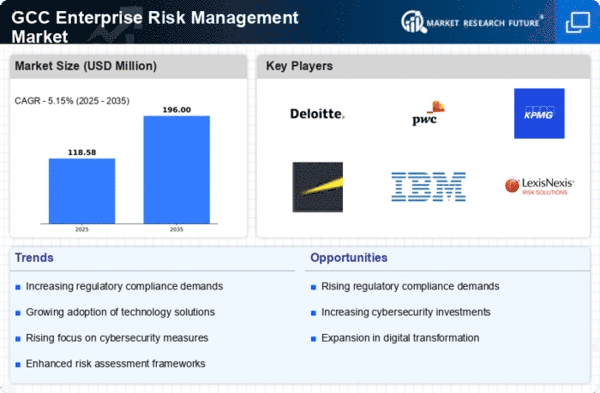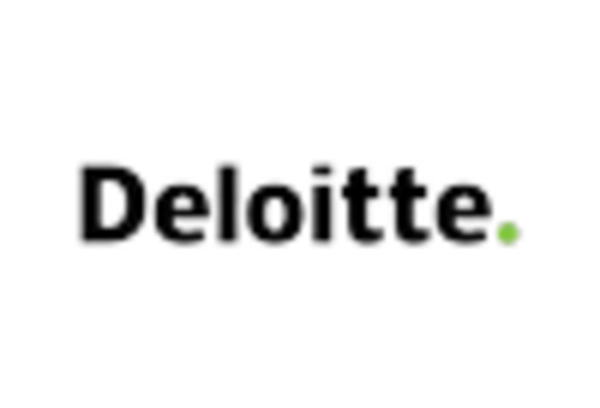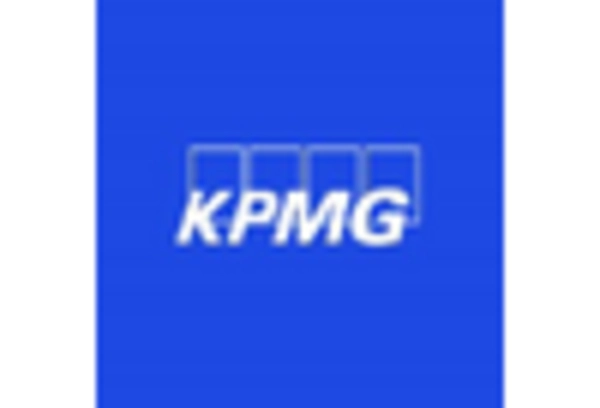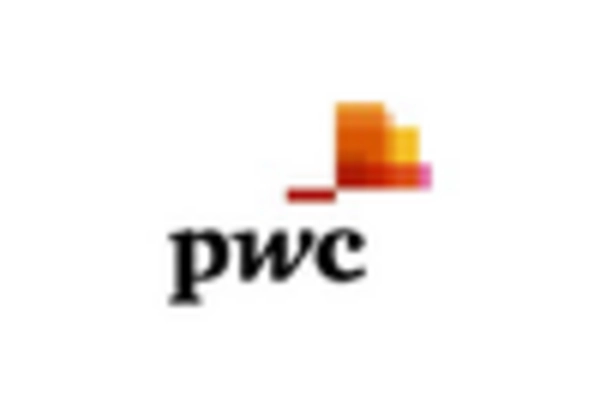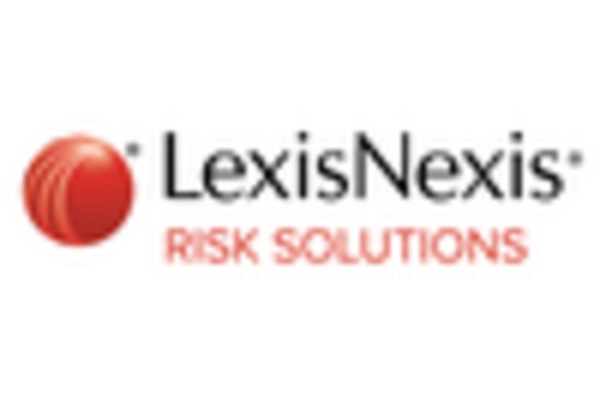Rising Cybersecurity Threats
The surge in cybersecurity threats is a significant driver for the enterprise risk-management market in the GCC. As organizations increasingly rely on digital platforms, the risk of cyberattacks has escalated, prompting businesses to prioritize cybersecurity within their risk management strategies. The enterprise risk-management market is witnessing a growing demand for solutions that address these threats. This includes risk assessment tools and incident response plans. Companies are investing in comprehensive cybersecurity frameworks to protect sensitive data and maintain operational continuity. This heightened focus on cybersecurity is likely to drive market growth, as organizations seek to mitigate risks associated with cyber threats and safeguard their assets.
Increased Regulatory Scrutiny
The enterprise risk-management market is experiencing heightened regulatory scrutiny across various sectors in the GCC. Governments are implementing stricter compliance requirements, compelling organizations to adopt robust risk management frameworks. This trend is particularly evident in industries such as finance and healthcare, where regulatory bodies are enforcing stringent guidelines to mitigate risks. As a result, organizations are investing in advanced risk management solutions to ensure compliance and avoid potential penalties. The market is projected to grow as companies seek to align their operations with evolving regulations, thereby enhancing their risk management capabilities. This increased focus on compliance is likely to drive demand for enterprise risk-management solutions, as organizations strive to navigate the complex regulatory landscape.
Integration of Advanced Analytics
The integration of advanced analytics into the enterprise risk-management market is transforming how organizations assess and manage risks. In the GCC, companies are increasingly leveraging data analytics to gain insights into potential vulnerabilities and threats. By utilizing predictive analytics and machine learning algorithms, organizations can identify patterns and trends that may indicate emerging risks. This data-driven approach enables businesses to make informed decisions and allocate resources more effectively. The enterprise risk-management market is likely to benefit from this trend, as organizations recognize the value of analytics in enhancing their risk assessment processes. As a result, investments in analytics-driven risk management solutions are expected to rise, further propelling market growth.
Emergence of Cloud-Based Solutions
The emergence of cloud-based solutions is reshaping the enterprise risk-management market in the GCC. Organizations are increasingly adopting cloud technologies to enhance their risk management capabilities, benefiting from scalability, flexibility, and cost-effectiveness. Cloud-based risk management solutions allow businesses to access real-time data and analytics, facilitating more agile decision-making processes. This trend is particularly appealing to small and medium-sized enterprises (SMEs) that may lack the resources for extensive on-premises systems. As cloud adoption continues to rise, the enterprise risk-management market is likely to expand, driven by the demand for innovative, cloud-based solutions that streamline risk management processes and improve overall efficiency.
Focus on Business Continuity Planning
The emphasis on business continuity planning is becoming increasingly prominent within the enterprise risk-management market. Organizations in the GCC are recognizing the importance of preparing for unforeseen disruptions, whether due to natural disasters, technological failures, or other crises. This focus on resilience is driving demand for risk management solutions that facilitate effective business continuity strategies. Companies are investing in tools and frameworks that enable them to identify critical functions, assess potential risks, and develop contingency plans. The enterprise risk-management market is expected to grow as organizations prioritize business continuity. This ensures they can maintain operations and protect stakeholder interests during challenging times.


